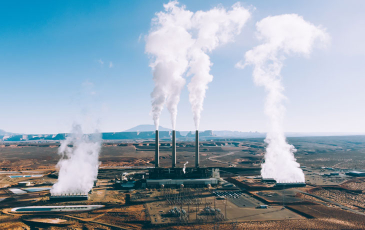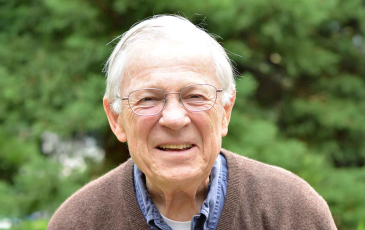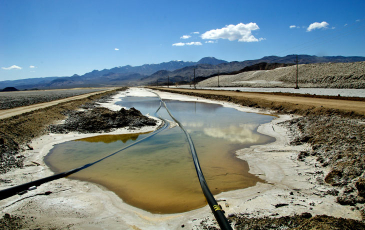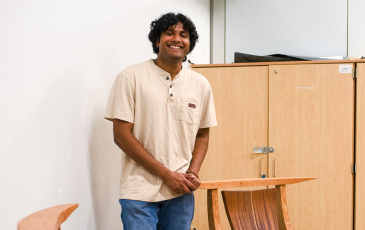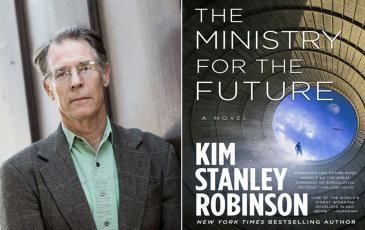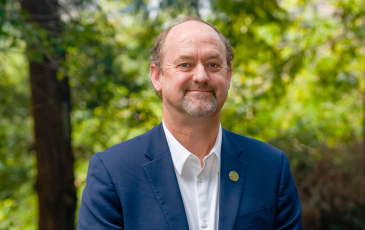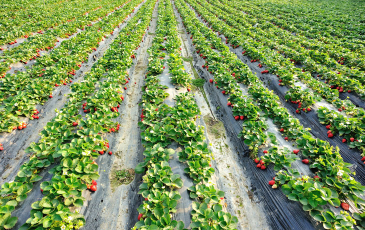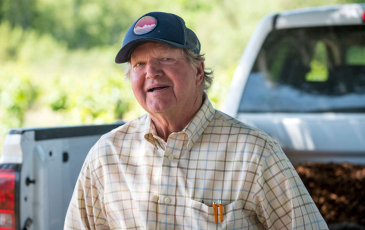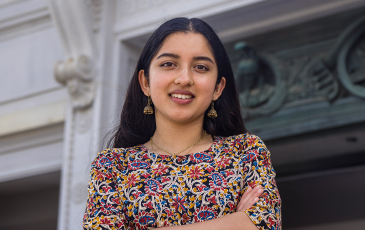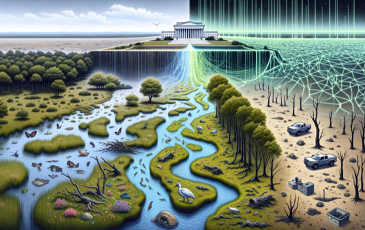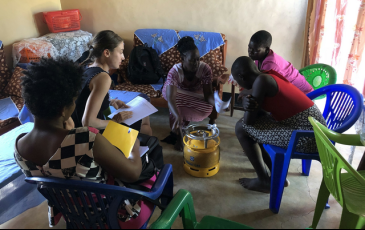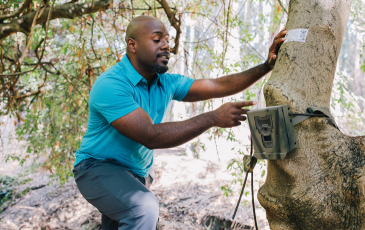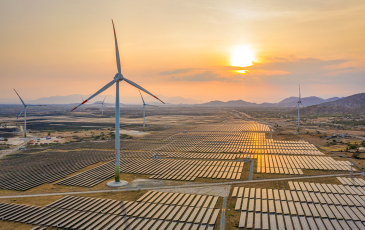Professor Dara O'Rourke writes about the lobbying efforts that led the Securities and Exchange Commission to water down its climate disclosure regulations for the MIT Technology Review.
In Memoriam: David Wood
The accomplished forest entomologist and renowned bark beetle expert died February 10. He was 93.
Renewable energy efforts in Nevada could be a double-edged sword
ESPM and ERG professor Meg Mills-Novoa spoke to Nevada Public Radio about her research on water scarcity and decarbonization across the Great Basin.
Wildfire smoke disproportionately affects California's Indigenous communities
A new method for measuring prolonged smoke exposure designed by ESPM's Rachel Morello-Frosch reveals the disproportionate impact of wildfire on Indigenous communities in California.
Vernard Lewis’ message for the future
The professor emeritus of Cooperative Extension spoke to KTVU about his career and longtime efforts to inspire youth to pursue a science education.
New study shows chronic jet lag increases risk of liver cancer
Mice spontaneously developed liver cancer under conditions that mimicked the chronic jet lag associated with many weeks of round-trip overseas flights.
Student Spotlight: Mayuresh Visswanathan
The fourth-year forestry and business administration double major talks about woodworking, forestry camp, and his time at UC Berkeley.
Exploring the connections between science fiction and climate change
UC Berkeley professors Daniel Aldana Cohen and Katherine Snyder spoke to award-winning author Kim Stanley Robinson about climate, politics, and the future.
How a pair of Bay Area bobcats fueled one student's passion for wildlife photography
Berkeley News recently interviewed fourth-year forestry and ecosystems management major Vishal Subramanyan about his work as a naturalist and wildlife photographer.
Artist, Writer, and Naturalist James Prosek to visit campus
A guest of the Berkeley Wildlife Program and Stone Center for Large Landscape Conservation, Prosek will deliver a public lecture on Friday, February 9th.
Unpacking plant diversity and climate change in California
Dean David Ackerly offers an overview of how California’s native flora has responded to climate change through time in a new Jepson Herbaria mini-workshop.
Want to preserve groundwater? Tax it.
Research by Professor Ellen Bruno found that groundwater demand in California’s Pajaro Valley shrank in response to long-term price increases.
Alum’s Wines Named to Wine Enthusiast’s 2023 Top 100 List
Jim Bundschu (BS '66 Agricultural Economics) revitalized his family’s 100-year-old vineyards. Today, his winery's sustainable, organic wines are receiving highest honors.
Student Spotlight: Shreya Chaudhuri
The third-year environmental science and human geography student recently completed the Millennium Fellowship program through the United Nations Academic Impact initiative.
White House rule dramatically deregulated wetlands, streams, and drinking water
New research co-authored by ARE's Joe Shapiro and Simon Greenhill uses machine learning to reveal which streams and wetlands are protected—or not—by changing Clean Water Act regulations.
Over-credited cookstove offsets undermine climate action
A UC Berkeley study reveals that cookstoves, the fastest-growing project type on the voluntary carbon market, generated 9.2 times more credits than appropriate.
UC Berkeley joining new statewide biodiversity research alliance
ESPM professor Christopher Schell will help coordinate a three-year effort to enhance biodiversity and environmental equity research.
Confronting biodiversity data’s inequities
Several ESPM researchers call attention to how biodiversity data could further entrench systemic inequities.
Designing energy policy for peace
A new book co-edited by ERG professor Daniel Kammen explores how energy policy can address structural violence.
Taxes on sugar-sweetened drinks drive decline in consumption
A UC-led study shows that purchases of sugar-sweetened beverages declined dramatically and steadily across five North American cities after excise taxes were placed on the products.


